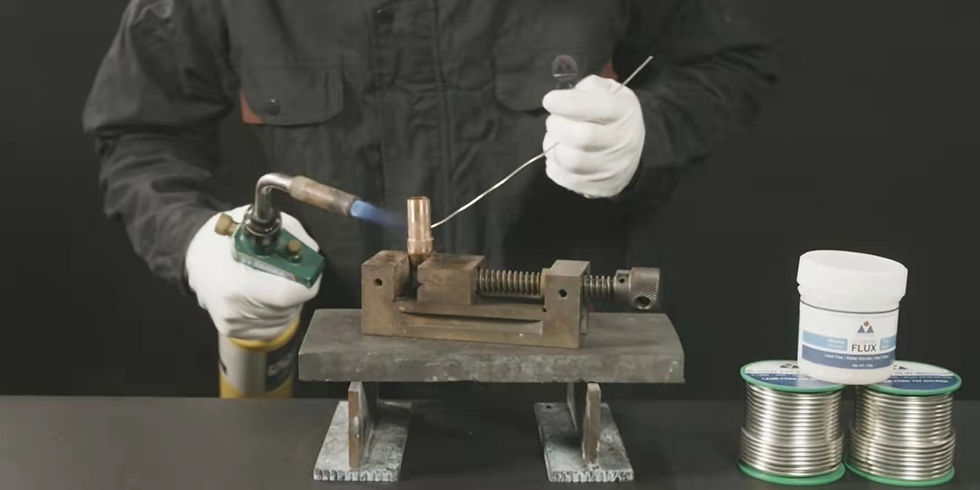Flux-Cored Brazing Alloys: Product Types and Applications
- Tony, the Welder

- May 27, 2020
- 2 min read
Flux-cored brazing alloys are composite solders which contain a fixed proportion of brazing flux inside their alloy shell. They come mostly in ring and rod forms, and are suitable for induction brazing, flame brazing, furnace brazing and other brazing methods.
Compared to traditional solid alloys, flux-cored brazing products have the following advantages:
1. A fixed amount of contained flux can be added simultaneously with its associated alloy during brazing, which makes the product ideal for automated brazing processes.
2. They reduce the usage of brazing flux. The alloy shell prevents brazing flux from coming into direct contact with heat source, which reduces evaporation of flux and release of harmful gases. On the other hand, they simplify the process for braze joint cleaning, as problems associated with conventional technologies such as flux wasting and difficulties in slag removal are largely solved.
3 common varieties of flux-cored brazing products are the copper, silver and aluminium types.
The most widely-applied copper type products are brass flux-cored alloys, and they are mainly used for the brazing of copper and copper alloy, low carbon steel, cast iron, stainless steel, cemented carbide and other materials.

The most commonly used aluminum flux-cored brazing alloys are of the silicon-aluminum and zinc-aluminum classes. Lowering silicon content from the aluminium-silicon eutectic can result in a series of flux-cored aluminium brazing alloys with enhanced plasticity. Adding elements like Mg, Cu, Zn, Ni to the aluminium-silicon system can adjust the properties of the aluminium alloys in ways which are suitable for their designated applications. Aluminium-silicon solders are mainly used for the brazing of aluminium alloys.

Different content levels of silver can be added to zinc-aluminium eutectic and eutectoid alloy to make zinc-aluminium alloys with different properties based on their specific requirements (the brazing temperature of such brazing alloys are usually lower than 500°C (932 °F)). Zinc-aluminium solders are used for the brazing of aluminium and other special materials, such as aluminium and copper alloy, and they are effective in preventing excessive softening of the braze joints during the heating process of brazing. Due to the above mentioned features, zinc-aluminium flux-cored brazing alloys offer promising prospects in both research and application.




Comments